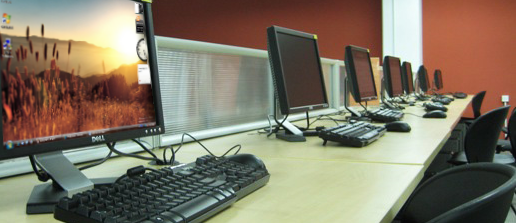Will Windows Vista live to die another day?

After spending most of the morning on the phone to a number of UK universities (due to the time difference, many US universities were still sleeping), the general consensus is that Windows 7, when released, will not be the first upgrade they roll out to their networks.
"Windows 7 Server" (Windows Server 2008 R2, the next generation server operating system from Microsoft) will be at the forefront of the next roll out of upgrades, with an unsuspecting client... Windows Vista.

The research I undertook stems from my own institution, the University of Kent, which I got in touch with earlier last week. Not only did I get a prompt reply, also attached was a link to the University Computer User's Panel which deals with the development of services for the entire-wide campus. According to a spokesperson for the university:
"It is intended to roll Vista out on our student desktops during the summer see the Information Services’ paper to be presented to the University's Computer User’s Panel next week."
While this is interesting news that many universities, not only my own, are rolling out Windows Vista for the students, staff and managed desktops which are deemed "more essential" to university infrastructure, are more likely to adopt Windows 7 once it has been released.
In the meantime, a number of universities around the world are also making steps to adopt Windows Server 2008 R2, to increase security and efficiency of their networks.
The University of Kent takes pride in the state of their computers. With multiple deals and contracts with computer manufacturers to reduce costs and to increase consistency across the network, the public computers are identical in every part of the campus; even branch office (other campuses) machines remain identical. These machines are all running Windows XP (Service Pack 2), boast an Intel Pentium 4 processor with 2GB RAM, ensuring maximum efficiency at a low cost.
Some institutions will opt for a cheaper solution depending on budgeting constraints, running slimmed down versions of Windows XP to reduce background services taking chunks out of the little memory they have - some as little as 512MB. Although Windows 7 has a basic requirement for 1GB RAM, it can still be installed on a lesser-powerful machine.
But Windows 7, being very similar in aesthetic design to Windows Vista, has an extraordinary difference, being that is leaves a reduced memory footprint and uses less hard drive space. My colleague and fellow Briton, Adrian Kingsley-Hughes proves that is faster than both Vista and XP, and has a perfect anti-compatibility excuse of coming with a virtual copy of XP which virtualises legacy versions of applications to run with previous operating systems.
There are issues to be considered:
- Application compatibility is one of the most essential parts of running an enterprise network. The applications need to run, without fault or glitch, effectively and efficiently. If this cannot be achieved, the applications' needs come first, even if it means using a legacy version of an operating system. With Windows XP Mode, which Mary Jo Foley has covered, this will enable universities to ensure applications run under the current Windows XP operating system, even with the new version of Windows arriving soon.
- User experience needs to be recognised, as universities cover students from all lengths and breadths of the world's corners. Some may well be new to the computing experience; even a few from developed countries may struggle. Allowing the user to feel confident in their computing experience will increase productivity and reduce confusion. Again, if this means using a legacy version of an operating system, such as XP to ensure the user has enough experience in using it, then that must also be a priority.
- Consistency remains an important factor to the end user experience. While many universities will have specific Mac or Linux labs for either enthusiasts or certain application functions, it would be confusing to end users who split their time between multiple computers with varied versions of the same brand of operating system.
With Windows Vista Service Pack 2 (SP2) slowly making its way out of the door, it seems likely that the vast majority of universities which still use Windows XP and are making plans to upgrade, will wait for SP2 to be released before any decisions are carried out. The spokesperson continued:
"Once a launch date is set, the university has to start the long process of testing software that is required to run on student and staff PCs.We have in the past taken the traditional route of waiting for the first service pack to be released before rolling out the service to our helpdesk and technical staff."
On to the million dollar question: will Windows Vista live to die another day, or will academic institutions give it the kiss of life which it whole-heartedly needs? Your comments make the blog monster happy...